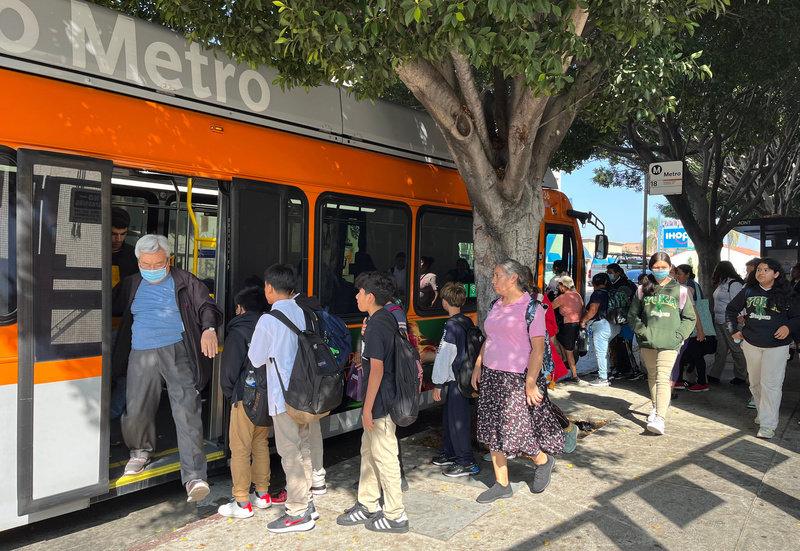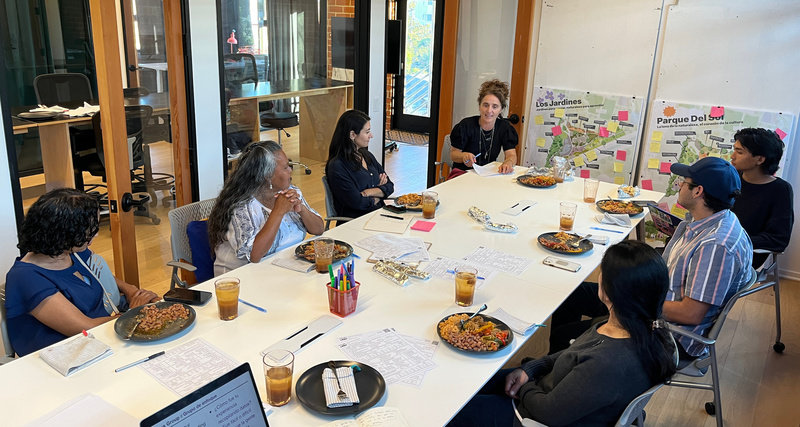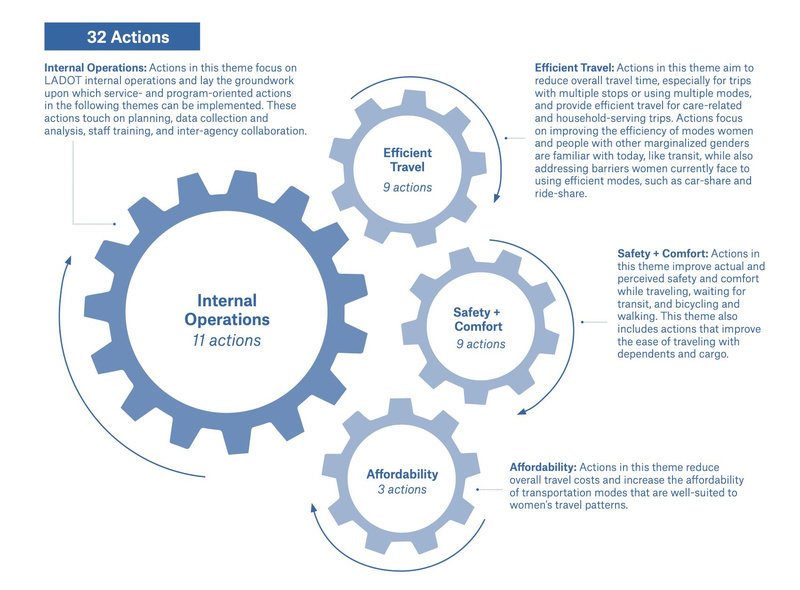Internal Operations actions integrate gender equity into LADOT internal operations and lay the groundwork for the successful implementation of all other Next Stop actions. For example, two actions in this theme direct LADOT to integrate gender equity criteria in two key decision-making processes the Department uses to prioritize projects and allocate funding.
Efficient Travel actions reorient the transportation system to efficiently align with women’s travel patterns. These changes will reduce overall travel time, especially for trips with multiple stops, and provide efficient travel to care- and household-related destinations.
Safety and Comfort actions respond to the disproportionate dangers people with marginalized genders experience while traveling. These actions focus on improving comfort and actual and perceived safety using and waiting for transit and using active transportation, like walking and bicycling.
Affordability actions seek to reduce overall travel costs and increase the affordability of transportation modes best suited to the travel patterns of women and people with other marginalized genders. While aimed at addressing the fact that women tend to spend a larger share of their income on transportation, these actions will make transit more affordable for all.
Read the Action Plan
here.



